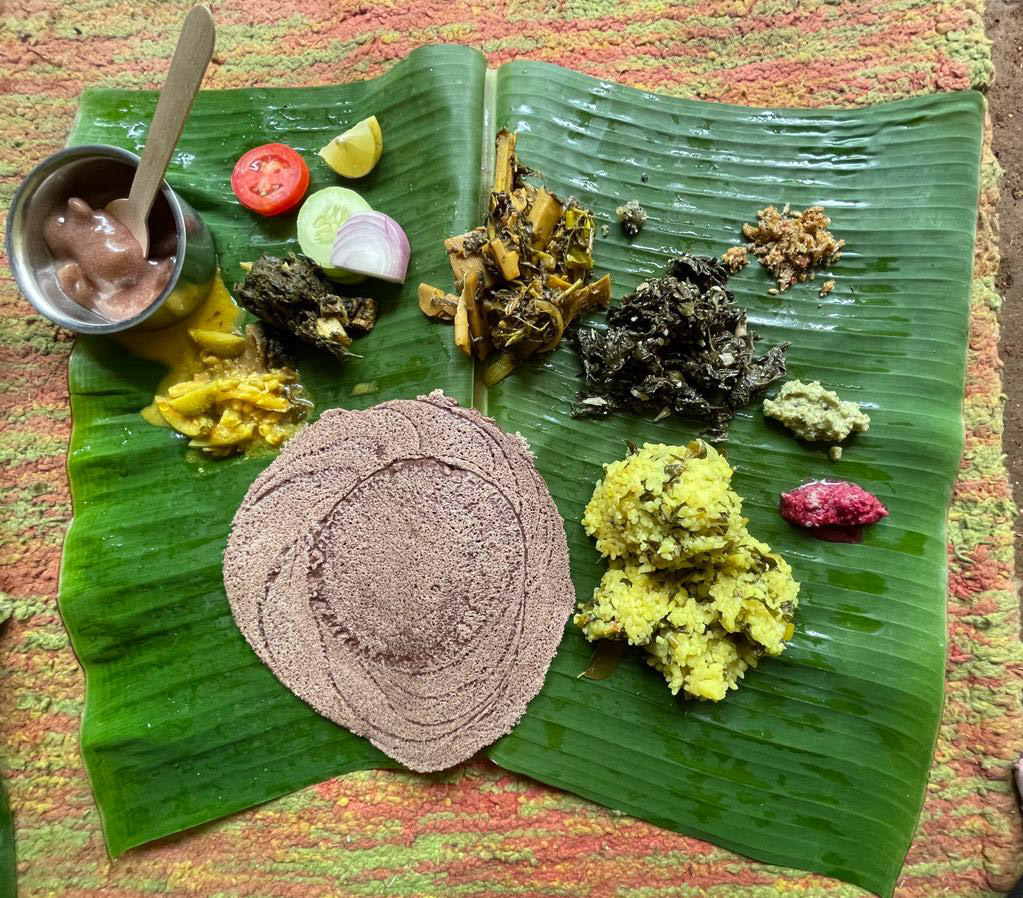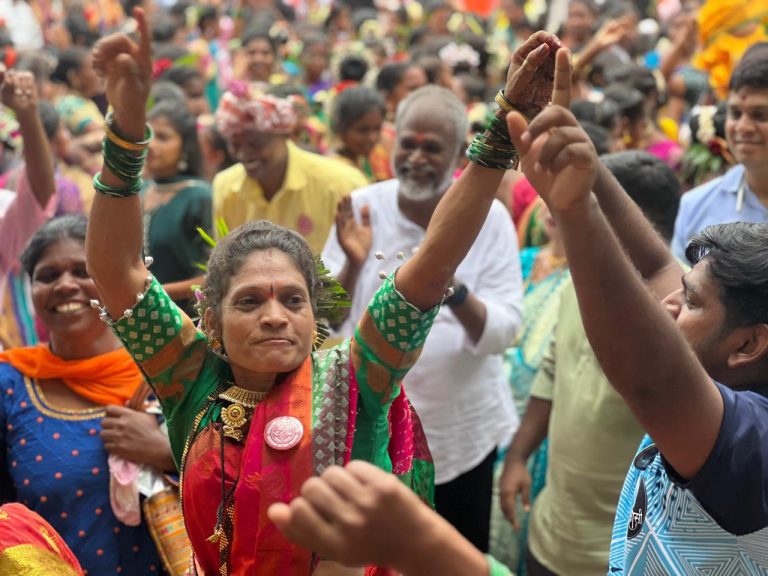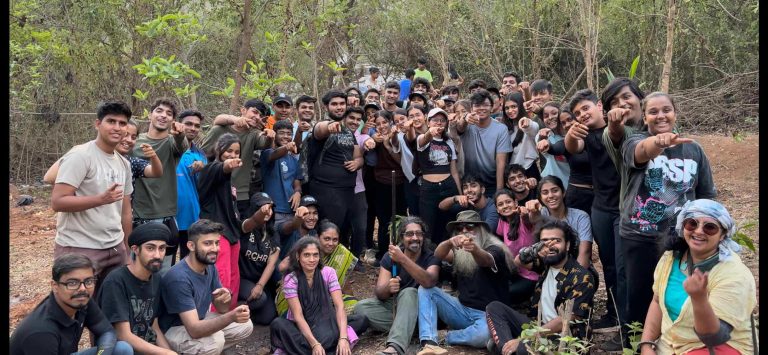Wild Foods Foraging Workshop with MoneyGram India
The employees of Moneygram India got to experience our Wild Foods Traditional Ecological Knowledge (TEK) workshop and wild foods foraging session today in a tribal hamlet in Mumbai’s Aarey Forest!
In these seven-hour deep-dive TEK sessions, we take urban participants on a journey into sustainable living using a combination of immersive tribal village experiences, ‘show-and-tell’ forest walks, wild food foraging and hyperlocal tribal cuisine experiences.
This workshop’s co-facilitators were WHF founder and TEK expert Sanjiv Valsan and Community mobiliser Vanita Thakre, who’s a Warli Adivasi native of Aarey Forest.
We also had the pleasure of hosting some special guests from Germany, including Boas and Roardo, who were to film our work for Arte, one of Europe’s leading channels. By the end of the day, they also became our buddies and huge fans of Warli tribal food, and just couldn’t stop eating J !
In the workshop, participants learned Traditional Ecological Knowledge through taste, touch and feel on guided forest and village walks, entering structured yet free-flowing, cross-cultural conversations with WHF’s educators and the indigenous tribal community; explored medicinal and food plants in the wild and learned the myriad intermeshed aspects of the TEK matrix such as food, natural farming, animism, tribal arts, crafts, music, philosophy and culture as interconnected parts of a cohesive whole, as experienced and lived by the indigenous people.
Importantly, through the medium of foraging and wild foods, they learned that compared to urban dwellers, the threat of habitat destruction is experienced differently by the indigenous communities, since for them it is a threat to not just their climate and biodiversity, but also their livelihood, identity and their entire ecocultural matrix.
As advertised, in addition to all the serious stuff there was obviously also the fun aspect of foraging in the forest and cooking wild foods, and they enjoyed a diverse and wholesome adivasi meal in a hand-built mud home in a tribal village. They also learned other cultural knowhow, such as the tribal process of building such cement-free constructions through locally sourced materials.
At the end of the session, participants planted over 30 food producing wild Konsai (diascorea alata) and diascorea bulbifera (karanda) tuber plants during this workshop, which could produce at least 1200 kg of highly nutrition and medicinal food for the village over the next 2 years, that too with zero irrigation, chemicals or deforestation. These important useful native species and awareness about them are getting rarer by the day, and hence the urgency to keep the TEK of wild foods alive.
We fund such wild food plantations during our TEK sessions using the incomings from workshop ticket costs. Participants, therefore, don’t just trek, forage, cook and eat, but also plant and return the seed stock of these food plants to the forest habitat, thus completing the hands-on observation-experience-emotion-consume-return learning circle. More wild food workshops = more plantation, and more plantation = more wild food. So by foraging with us you can actually help us protect habitats while feeding humans at the same!
Aesthetics, emotion, conversation, food and tactile senses like touch, smell and taste are doorways to the many interconnected components of the tribal TEK ecosystem. Strategically using all five senses, our workshops cover forest walks, foraging and wild food, interactions with the indigenous knowledge keepers, human-wild coexistence, eco architecture, nature’s cycles, tribal art, animist eco-spirituality, ethnobotany and natural farming during a seven-hour intensive, ending with a delicious wild food lunch, that’s been slow cooked on a wood fire.
For city folks, these wild food experience are an accessible entry point to understanding the indigenous culture of conservation, while for the tribals they are a source of both livelihood as well as cultural pride.
Impact:
For urban participants: These TEK workshops have been transformational in their results across a variety of age groups (ranging from age 6 to 60), social strata and nationalities. In post-event video and verbal surveys, learners reported that our experiential education methods had been successful in transforming their perspectives and attitudes on conservation, urban-tribal coexistence, sustainability and social justice within a very short period. Importantly, we have observed that participants quickly developed their sense of nature intuition, which is otherwise increasingly being blunted in the concrete jungle.
For indigenous people: Simultaneously, the indigenous community, for whom we have been generating culture-appropriate livelihood through this activity, have appreciated that they are now more motivated to conserve their indigenous ecology principles, and have appreciated the food security resulting from the plantation of wild food species funded by these events.
For climate resilience and conserving biodiversity: Our workshops plantations have resulted in a living prototype for the conservation of important and climate-resilient native wild food plant species such as Diascorea Alata, a giant tuber that generates between 50-100 kg of food per plant to the local community when mature (zero need for fertilisers / pesticides/ weedicides/ irrigation); and also shown possibilities of propagating diascorea bulbifera, a once common wild food native tuber species inside an existing forest itself without any requirement for clearing. This prototype is significant, since many climate-resilient Wild native foods are among the “vanishing foods” of India.



